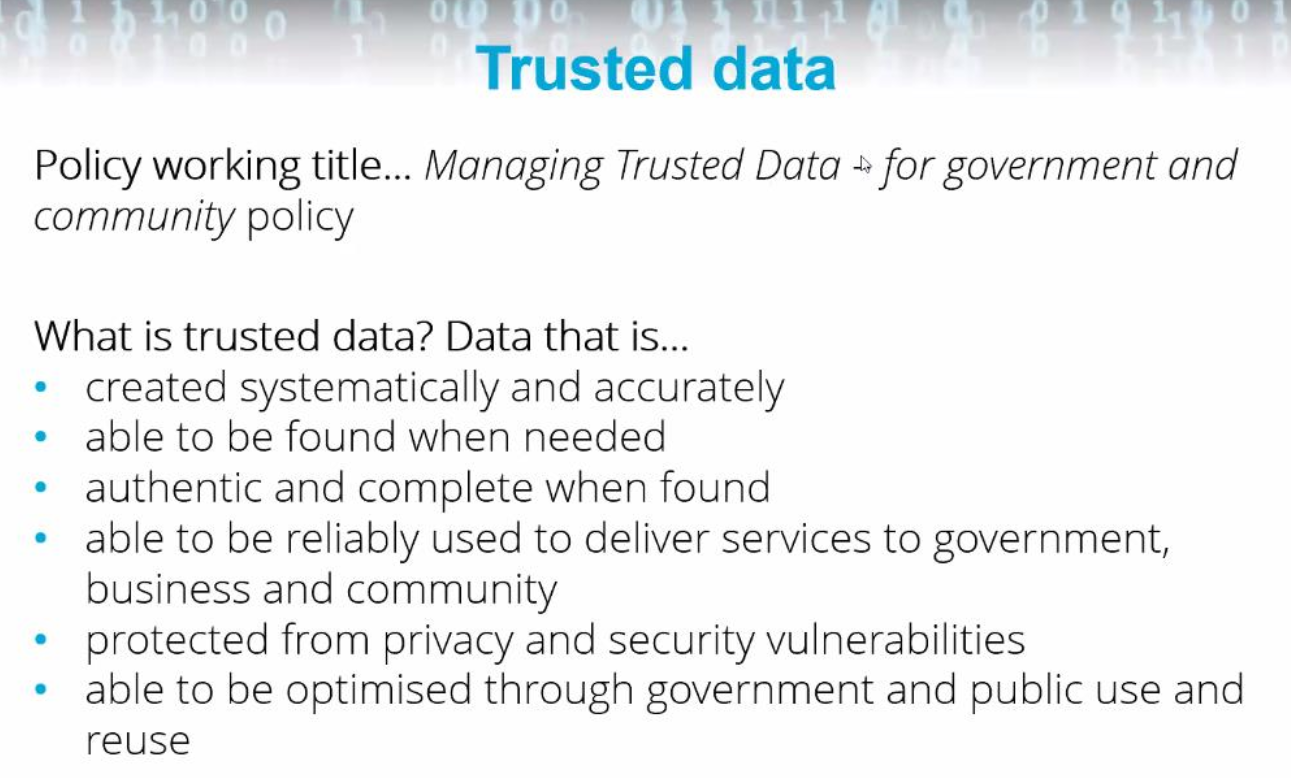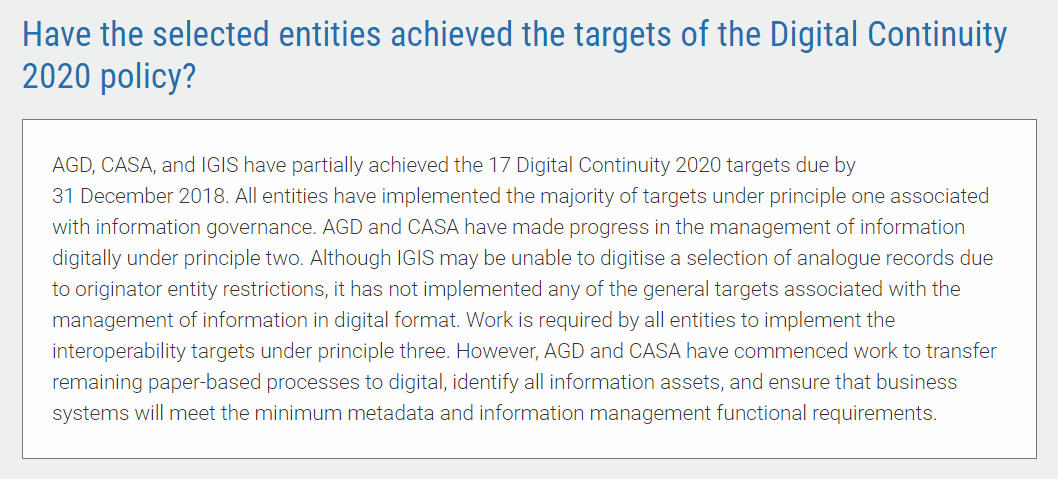The National Archives of Australia has just released the exposure draft of the new records and information management policy, that will follow on from the Digital Continuity 2020 standard.
The new policy is called Building Trust in the Public Record, and the theme is very much on integrity and accountability. While the thrust of the message may have changed, the policy is essentially the same. Implement good governance and reporting; manage all of your important information; and manage it effectively.

NAA has changed the language of the policy to put the lens on value (for the organisation and the community), and less on compliance for its own sake. This approach might meet with less resistance than DC2020 did, and it might not. If we subscribe to the idea that agencies ignored DC2020 because of how it was presented, changing things up might help. But if we think (as I do) that DC2020 failed because it really couldn’t be implemented, a new melody for the same lyrics probably won’t have much impact. We know that agencies implemented the parts of DC2020 that they could implement, particularly the governance elements. It was the technical requirements they just couldn’t address.
Fundamentally, the new policy still requires effective management of information assets (specified as records, information, and data, for absence of all doubt), across all business systems. This includes sentencing and disposition, as well as application of mandatory metadata. Traditional EDRMS can’t achieve this, and nor can EDRMS with added connections to a limited number of business systems. We developed Castlepoint to solve this issue though, and soon more solutions will be developed with this type of capability. In the era of DC2020, there simply was no technology that could do this (not until January 2019 at least, when Castlepoint launched).
This time, the NAA Policy can be successful, as the technology is now available to manage all information assets, in all systems. And when this Policy is implemented comprehensively, it will absolutely build trust in the public record.
Categorised

